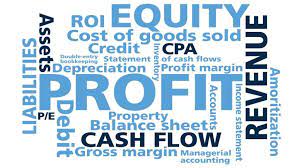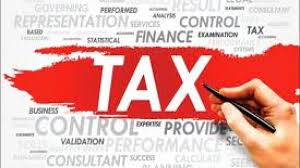
Small businesses play a crucial role in the Nigerian economy, contributing significantly to employment generation, innovation, and poverty alleviation. In a country known for its entrepreneurial spirit, small businesses provide a foundation for economic growth and serve as a vehicle for empowering individuals and communities.
Small businesses form the backbone of the Nigerian economy, accounting for a substantial portion of economic activity. They encompass various sectors, including retail, manufacturing, agriculture, services, and technology.
These enterprises contribute to job creation, particularly in urban and rural areas, and often offer employment opportunities for youth and women. Small businesses are vital in driving economic diversification, reducing dependence on oil revenues, and fostering inclusive growth.
Despite their importance, small businesses in Nigeria face numerous challenges that hinder their growth and sustainability. Limited access to finance is a major obstacle, with many entrepreneurs struggling to secure affordable credit and navigate complex loan application processes.
Insufficient infrastructure, such as erratic power supply and inadequate transportation networks, hampers operational efficiency and raises costs. Additionally, bureaucratic red tape, corruption, and an unpredictable regulatory environment pose significant barriers to small business development.
Recognizing the importance of small businesses, the Nigerian government has implemented several initiatives and policies to support their growth. The Central Bank of Nigeria, for instance, has established various funding schemes and loan programs targeted at small and medium-sized enterprises (SMEs).
Additionally, agencies like the Small and Medium Enterprises Development Agency of Nigeria (SMEDAN) and the Bank of Industry (BOI) provide training, technical assistance, and access to finance to support small businesses across the country. These efforts aim to improve the business environment and encourage entrepreneurship.
Technological advancements have transformed the small business landscape in Nigeria, creating new opportunities and improving efficiency. The widespread adoption of mobile technology and the internet has facilitated e-commerce, enabling entrepreneurs to reach wider markets and overcome geographical limitations.
Fintech solutions have also emerged, offering innovative payment systems, digital banking, and crowdfunding platforms, which address the financing needs of small businesses. Embracing technology and innovation is crucial for small businesses to remain competitive in a rapidly evolving business environment.
Unemployment remains a significant challenge in Nigeria, particularly among the youth population. Small businesses play a pivotal role in addressing this issue by providing employment opportunities and promoting entrepreneurship.
By nurturing a culture of self-reliance and skill development, small businesses empower individuals to create their livelihoods and contribute to the economy. Furthermore, they often serve as training grounds, equipping employees with essential skills and experience that can be transferred to other sectors or entrepreneurial endeavors.
Small businesses have a profound impact on local communities, especially in rural areas. They contribute to poverty reduction by stimulating economic activity, increasing income levels, and reducing dependence on subsistence farming.
Moreover, small businesses enhance access to goods and services that might otherwise be scarce or unavailable in remote locations. By supporting local artisans, farmers, and craftsmen, these enterprises preserve cultural heritage, promote sustainable practices, and foster community cohesion.
As a small business owner, understanding the basic accounting principles and terminology is crucial for managing your finances effectively. Accounting may seem daunting at first, but having a solid grasp of key terms will help you communicate with accountants, make informed financial decisions, and maintain the financial health of your business.
In this article, we will outline fifteen (15) essential accounting terms that every small business owner should know.
Assets - Assets are resources owned by your business that have economic value. They can include cash, inventory, equipment, property, and accounts receivable. Assets are essential for generating revenue and can be classified as current assets (expected to be used or converted into cash within a year) or long-term assets (expected to benefit the business beyond a year).
Liabilities - Liabilities represent your business's financial obligations to external parties. These can include loans, accounts payable, and accrued expenses. Liabilities are classified as current liabilities (due within a year) or long-term liabilities (due beyond a year). Managing liabilities effectively is crucial for maintaining a healthy financial position.
Equity - Equity, also known as net worth or owner's equity, represents the residual interest in your business's assets after deducting liabilities. It is calculated by subtracting liabilities from assets. Equity can increase through business profits and additional investments or decrease through losses or owner withdrawals. Understanding your equity position helps gauge the value of your business.
Revenue - Revenue is the income generated from the sale of goods or services. It represents the inflow of assets resulting from primary business activities. Tracking and analyzing revenue is vital for evaluating the financial performance of your business and assessing its growth potential.
Expenses - Expenses are the costs incurred by your business to generate revenue. They include various items such as rent, utilities, salaries, marketing, and supplies. Monitoring and managing expenses is crucial for maintaining profitability and identifying areas where cost-cutting measures may be necessary.
Profit - Profit, also known as net income or earnings, is the positive difference between revenue and expenses. It represents the financial gain your business has made during a specific period. Profit is a key indicator of business success and sustainability, and it can be reinvested into the business or distributed to owners as dividends.
Cash Flow - Cash flow refers to the movement of money into and out of your business. It includes cash inflows from revenue and financing activities and cash outflows for expenses and investments. Understanding your cash flow is crucial for ensuring your business has enough liquidity to meet its financial obligations and identifying potential cash flow issues.
Accounts Payable - Accounts payable (AP) represents the amounts your business owes to suppliers, vendors, or creditors for goods or services received but not yet paid for. Managing accounts payable effectively is important for maintaining positive relationships with suppliers and avoiding late payment penalties.
Accounts Receivable - Accounts receivable (AR) represents the amounts owed to your business by customers or clients for goods or services provided on credit. Monitoring and collecting accounts receivable in a timely manner are critical for maintaining healthy cash flow and minimizing the risk of bad debts.
Depreciation - Depreciation is the gradual decrease in the value of a long-term asset over its useful life. It is an accounting method used to allocate the cost of an asset over time. Understanding depreciation helps accurately reflect the true value of assets and allows for appropriate tax deductions.
Balance Sheet - A balance sheet is a financial statement that provides a snapshot of your business's financial position at a specific point in time. It shows the assets, liabilities, and equity of your business and helps you assess its solvency and liquidity. Regularly reviewing the balance sheet is essential for monitoring your business's financial health.
Income Statement - An income statement, also known as a profit and loss statement, summarizes your business's revenues, expenses, and net profit or loss over a specific period. It helps you evaluate the profitability of your business operations and identify areas where adjustments or improvements are needed.
Cash Flow Statement - A cash flow statement provides an overview of your business's cash inflows and outflows during a specific period. It categorizes cash flows into operating, investing, and financing activities, providing insights into how your business generates and uses cash. Monitoring cash flow statements helps identify potential cash flow problems and make informed financial decisions.
Break-Even Point - The break-even point is the level of sales or revenue at which your business neither makes a profit nor incurs a loss. It represents the point where total costs equal total revenue. Understanding your break-even point helps you determine the minimum sales volume needed to cover costs and make informed pricing and production decisions.
GAAP - GAAP stands for Generally Accepted Accounting Principles. These are a set of standardized accounting principles, standards, and procedures that guide financial reporting. Following GAAP ensures consistency and comparability in financial statements, making them more reliable and useful for external stakeholders such as investors, lenders, and regulators.
In conclusion, acquiring a basic understanding of accounting terms is crucial for small business owners to effectively manage their finances. The terms outlined in this article provide a foundation for communicating with accountants, analyzing financial statements, and making informed decisions.
By familiarizing yourself with these terms and their implications, you can gain greater control over your business's financial health and increase your chances of long-term success.






















